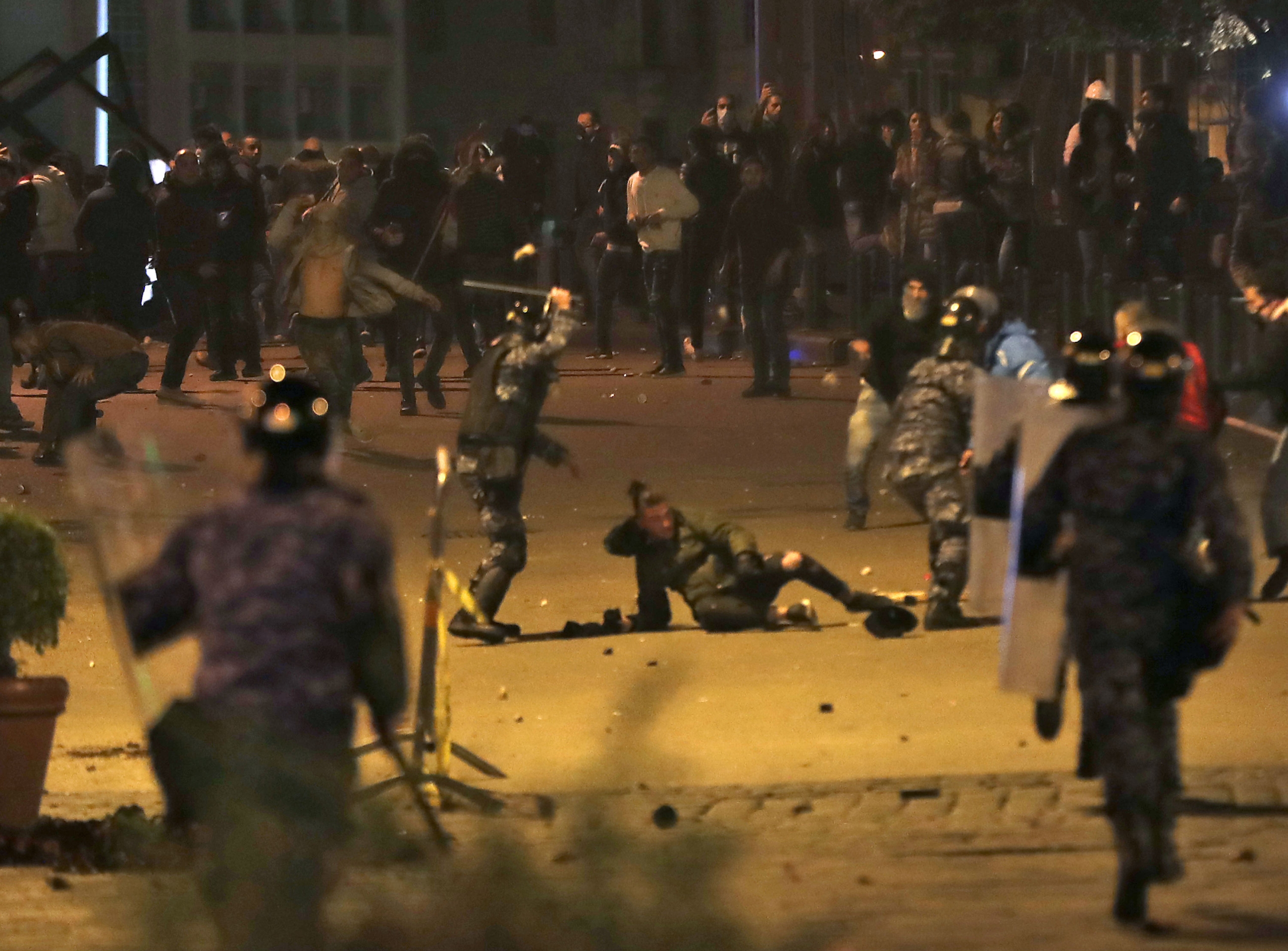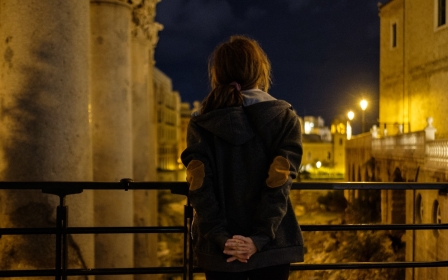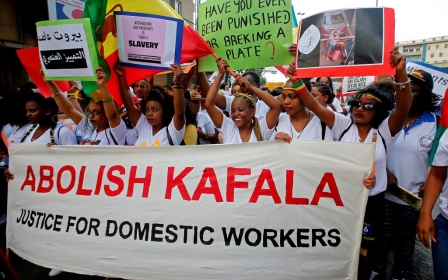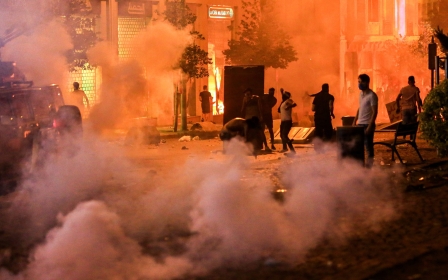UN calls for investigation into violence against Lebanese protesters

The United Nations on Monday called for Lebanon to open an investigation into alleged “excessive force” used against protesters after a violent crackdown over the weekend.
Lebanon’s protest movement, which has paralysed the country since erupting on 17 October, has been largely peaceful, with security forces only occasionally using moderate force against crowds.
Lebanese were brought to the streets two months ago in response to planned tax hikes that would have hit their pockets hard.
Since then, daily protests across the country have called for the complete removal of the political class and an end to the corruption so rife in Lebanese politics.
'The violence and clashes over the weekend once again showed that postponements of a political solution of the current crisis create a fertile ground for provocations and political manipulation'
- Jan Kubis, UN envoy
Over the weekend, however, clashes between security forces and protesters wounded dozens, as tear gas and rubber bullets were fired at demonstrators.
New MEE newsletter: Jerusalem Dispatch
Sign up to get the latest insights and analysis on Israel-Palestine, alongside Turkey Unpacked and other MEE newsletters
In response, UN Special Coordinator for Lebanon Jan Kubis called for "the identification of instigators of violence".
“The violence and clashes over the weekend once again showed that postponements of a political solution of the current crisis create a fertile ground for provocations and political manipulation,” he tweeted.
“Identification of instigators of violence, investigation of the incidents as well as of use of excessive force by the security forces is necessary, also to prevent sliding down towards more aggressive and confrontational behavior of all.”
On Saturday, protesters attempted to reach central Beirut’s Nejmeh Square, the location of the Lebanese parliament.
Much of Downtown Beirut, including Nejmeh Square, is off-limits to the public over security concerns, and attempts to remove barriers and enter the district were met by force. Demonstrators threw rocks at the security forces in response to their obstruction.
A cat-and-mouse game between security forces and protesters then ran through much of the night, as people were chased from Downtown into the streets of neighbouring areas.
On Sunday, the eve of slated parliamentary consultations over the choice of the next prime minister, violence flared up again in the capital’s centre.
Adding to the aggravation on both nights was the presence of supporters of Shia parties Hezbollah and Amal, who confronted protesters and attempted to destroy their encampments in Martyrs’ Square.
Hezbollah and Amal are both members of Lebanon's broad cross-party government, which protesters have sought removed.
Raya al-Hassan, Lebanon’s interior minister, said she has ordered a "rapid and transparent" enquiry.
Writing on Twitter, she acknowledged the security forces had made “some mistakes” and stressed to their head that Lebanese legally had the “right to protest”.
Hassan has faced criticism previously for saying “sometimes bad things happen” when questioned over security forces’ violent response to protesters.
On Sunday, Amnesty International criticised the "excessive use of force" used the night before and noted that the protests were “overwhelmingly peaceful”.
Amnesty’s Diala Haidar also expressed concern over the appearance of masked men in plainclothes who joined security forces in "violently attacking protesters".
Lebanon is currently at risk of an economic meltdown and is struggling to form a new government since Prime Minister Saad Hariri resigned on 29 October.
Though parliamentary consultations were set to be held to find a replacement for Hariri - or, as was likely, rename him as premier - President Michel Aoun delayed the session until Thursday.
Middle East Eye delivers independent and unrivalled coverage and analysis of the Middle East, North Africa and beyond. To learn more about republishing this content and the associated fees, please fill out this form. More about MEE can be found here.




